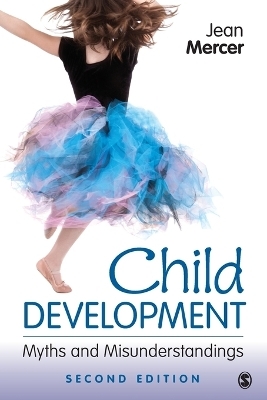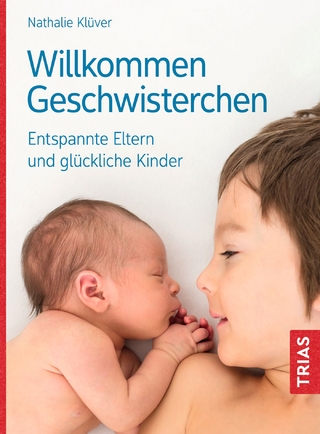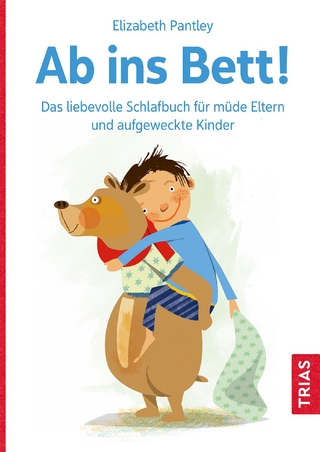
Child Development
SAGE Publications Inc (Verlag)
978-1-4522-1768-0 (ISBN)
In Child Development: Myths and Misunderstanding Second Editions, Jean Mercer uses intriguing vignettes and questions about children and families to guide readers in thinking critically about 59 common beliefs. Each essay confronts commonly held misconceptions about development, encouraging students to think like social scientists and to become better consumers of media messages and anecdotal stories. The book can be assigned to parallel either chronologically or topically organized child development texts. Features and Benefits: Presents 59 short essays about child development that challenge readers to reconsider their pre-conceived notions14 new essays in the second edition confront topics like language acquisition, adoption, discipline, and nature versus nurture.Includes carefully developed critical thinking questions at the end of each essayOffers examples of research to help students make the connection between research designs and conclusions Intrigues and engages students with the theme of dispelling myths and misconceptions and challenges them to find out if their own beliefs are correct or incorrect.
Introduction: Claims About Child Development Part I: Genetics and Prenatal Life Claim 1: Genetic factors play such a strong role in human development that genes alone can determine certain human behavioral characteristics. Claim 2: There is no harm in putting off childbearing until the mother's career is established. Claim 3: If a child's problem is genetically caused, the problem will be present at birth and will stay the same throughout life. Claim 4: Unborn babies are not influenced much by the environment outside the mother's body. Claim 5: As a mother-to-be gets closer to the date when her baby will be born, she needs to be more careful about alcohol and drugs, because the risk of birth defects increases throughout pregnancy. Claim 6: If a woman who is taking antidepressant medication becomes pregnant, she should stop taking the drugs because they may cause birth defects in her baby. Claim 7: Mothers care for their babies well because they have a maternal instinct. Claim 8: Babies work hard to be born. Claim 9: "Crack babies" can't be cured and will always have serious problems. Claim 10: We can learn about human development from studying baby animals, especially primates. Part II: Infants and Toddlers Claim 11: Parents need to have contact with their babies right after birth, so they can bond with them. Claim 12: Babies are born with emotional attachments to their mothers and can recognize their mothers at once. Claim 13: Feral children are individuals who have been brought up from infancy by animals. Claim 14: A baby's sleeping position can cause or prevent sudden infant death syndrome. Claim 15: Parents should not talk baby talk to their children, because this slows language development. Claim 16: Being exposed to two different languages is confusing for babies and interferes with normal language development. Claim 17: Breast-feeding makes babies more intelligent. Claim 18: When parents divorce, it's important for young children to have certain experiences with both parents, or they will form an attachment to only one of them. Claim 19: Toddlers drop food on the floor because they want to make their parents mad. Claim 20: It is important for parents to work with babies and teach them how to walk. Claim 21: It is a good thing for an infant or a toddler to have experience with many caregivers, not just one or two. Claim 22: Some children would starve to death if their parents did not coax them to eat. Claim 23: Parents who were abused as children are likely to abuse their own children. Part III: Preschoolers Claim 24: Having kids listen to Mozart makes them smart. Claim 25: The time between birth and 3 years is the most important period of development and learning in a person's life. Claim 26: People who are adopted will always be unhappy because they have suffered a Primal Wound. Claim 27: Children need to develop basic trust and show it by their confidence in other people. Claim 28: If a child is able to complete a task with an adult present, he or she is also able to do it alone. Claim 29: Preschoolers who hold their breath when angry are trying to upset their parents and get their own way. Claim 30: Vaccines and heavy metals cause autism. Claim 31: Autism rates are rising rapidly, especially in certain parts of the country, so something must be happening to cause more cases of this serious developmental problem. Claim 32: Children with brain injuries can be rehabilitated by using practices like patterning, and other problems can be treated with similar approaches. Claim 33: Preschoolers who try to bargain with their parents really want to manipulate and control adults, and they should not be allowed to negotiate. Claim 34: A young child can tell when someone is just teasing. Claim 35: Children with attachment disorders must be treated very sternly and differently from typically-developing children-even in ways that are ordinarily considered abusive. Claim 36: Spanking should never be used to discipline a child, because it is ineffective and causes children to model the aggression they experience. Part IV: School Age Children Claim 37: Children who play with matches will grow up to be seriously disturbed and violent and will probably be serial killers, especially if they are also cruel to animals and wet their beds. Claim 38: Children have different learning styles, depending on whether they are left brained or right brained. Claim 39: Karate lessons help schoolchildren achieve self-discipline and improve their schoolwork. Claim 40: Birth order is an important factor that determines children's intelligence and personality. Claim 41: When a child is mentally ill, any psychological treatment is better than no treatment. Claim 42: Bullying is a natural behavior for children, and there's nothing you can do to stop it. Claim 43: Sugar is a major cause of hyperactive behavior. Claim 44: Adopted children have many more problems of social and emotional development than nonadopted children do. Claim 45: If a child is sexually molested, he or she will probably repress the memory. Claim 46: Parents really don't influence their children's long-term development very much. Part V: Adolescents Claim 47: Children are more likely to become delinquent if their fathers are absent or uninvolved. Claim 48: Violent television programs and video games cause increased aggressive behavior. Claim 49: If parents are not strict enough, children will behave badly and may become criminals. Claim 50: Adolescents' brains go through some rapid changes; as a result, teenagers develop new ways of thinking about themselves and about the world. Claim 51: High self-esteem makes children perform better in school. Claim 52: Single-sex schools give better outcomes of academic achievement than do coeducational schools. Claim 53: The DARE program is an effective way to prevent children and adolescents from dealing or using drugs. Claim 54: Children and adolescents learn bad behavior from their peers. Claim 55: Young teenagers should be tried and sentenced as adults if they commit serious crimes. Claim 56: Adolescence is an emotionally dangerous time when teenagers are likely to attempt or commit suicide. Claim 57: Punishment is an effective way of changing children's and adolescents' undesirable behaviors. Claim 58: Children are reaching puberty earlier with each generation. Claim 59: Teenage boys and girls should have the same level of fat in their bodies, about 10%. Afterthoughts
| Verlagsort | Thousand Oaks |
|---|---|
| Sprache | englisch |
| Maße | 152 x 229 mm |
| Themenwelt | Sachbuch/Ratgeber ► Gesundheit / Leben / Psychologie ► Schwangerschaft / Geburt |
| Geisteswissenschaften ► Psychologie ► Entwicklungspsychologie | |
| Sozialwissenschaften ► Soziologie | |
| ISBN-10 | 1-4522-1768-8 / 1452217688 |
| ISBN-13 | 978-1-4522-1768-0 / 9781452217680 |
| Zustand | Neuware |
| Haben Sie eine Frage zum Produkt? |
aus dem Bereich


